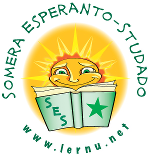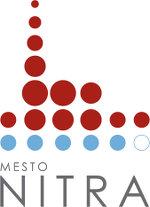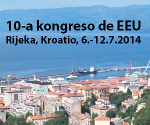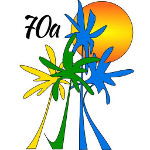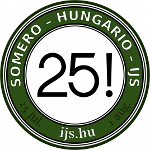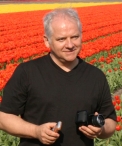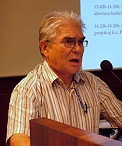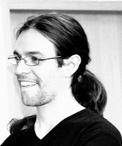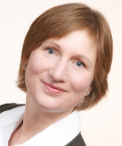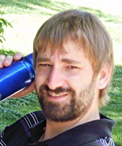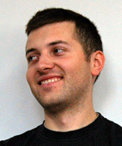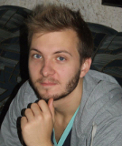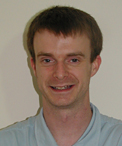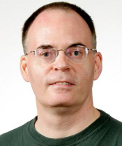SES 2014 SK
Partopreno
Praktikaj
Organizantoj
Sub aŭspicio de
Ni rekomendas
Instruado
La instruadon de Esperanto dum SES gvidos spertaj Esperanto-instruistoj, kiuj havas abundan internacian sperton.
Dum la alventago (2014-07-12) okazos mallonga enir-testo, por povi bone dividi la lernantojn laŭ lingvonivelo. Fine de la aranĝo ili ricevos atestilojn pri partopreno en 26-hora lingvokurso ĉe la nivelo A1–C1, laŭ la Komuna Eŭropa Referenckadro por Lingvoj.
Memtaksado
Por mezuri vian nunan Esperanto-nivelon, ni invitas vin preni 5 minutojn por respondi al reta demandaro. Danke al viaj respondoj, ni povos proponi al vi la grupon, kiu plej taŭgas al via nivelo. Tiu nivel-mezurado ne koncernas la tutkomencantojn.
La demandaro estas en 11 lingvoj. Bonvolu elekti en la malsupra listo tiun, kiun vi preferas.
Čeština ⋅ Deutsch ⋅ English ⋅ Español ⋅ Esperanto ⋅ Français ⋅ Italiano ⋅ Magyar ⋅ Polski ⋅ Русский ⋅ Slovenčina
Instruistoj
Nivelo A1 | |
Nivelo A2 | |
Nivelo B1 | |
Nivelo B2 | |
Niveloj C1–C2 | |
Specialaj eroj de la programo
Esperanto-literaturo kaj kulturo
Per Esperanto eblas ne nur ami kaj kvereli, kunsidi kaj forgesi akuzativojn, sed ankaŭ verki literaturajn tekstojn. Jam ekde Zamenhof en nia lingvo estiĝis poemoj, romanoj, noveloj kaj tiel plu ĝis kanto-tekstoj rande de beletro. Venu al nia kurso, kaj vi kleriĝos pri literaturo en Esperanto kaj ni montros al vi kiel verki (mal)bonan poemon!
Surbaze de la deziroj kaj de la konsisto de la partoprenantoj, ni traktos diversajn temojn, ekzemple:
- Enkonduko al la t.n. E-kulturo kaj E-literaturo, konkrete al la originalaj poezio kaj prozo kaj al la periodoj de la originala E-literaturo (laŭ Sutton).
- Aparta pritrakto de pluraj gravaj aŭtoroj kiel William Auld, Baldur Ragnarsson, Roberto Passos Nogueira, Mauro Nervi, Mao Zifu, ktp.
- Tradukado de beletraj tekstoj.
- Rilato inter kantotekstoj kaj poezio.
- Redaktado de internacia kultura kaj literatura revuo (kun Beletra Almanako kiel aktuala ekzemplo).
- Eldonado de E-libroj.
- Recenzado de beletraĵoj.
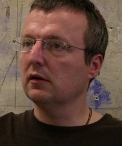 Jorge Camacho (ES) |
Jorge Camacho (Hispanujo, 1966). Ĉefaj verkoj: eseo La liturgio de l’ foiro; rakontoj en Sur la linio kaj Ekstremoj, prozaĵo La ĉapo de la sterko-vermo, novelo La Majstro kaj Martinelli; poemaroj Celakantoj, Saturno, Eklipsas, Koploj kaj filandroj, La silika hakilo kaj En la profundo (2013). Tradukis Letero el Palestino de Santiago Alba, poemojn de Ángel González en Astura bukedo, novelojn kaj poemojn de Jorge Luis Borges en La sekreta miraklo. Kunredaktas la literaturan revuon Beletra Almanako. |
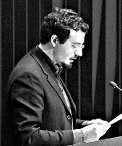 Nicola Ruggiero (IT) |
RUGGIERO, Nicola. 1986. Italo. Naskiĝis en Mola di Bari, Apulio, suda Italio, nuntempe loĝanta en Seltjarnarnes, apud Rejkjaviko, Islando. Ekde 2006 komitatano de Esperantlingva Verkista Asocio, jam B-komitatano de TEJO, prezidanto de Itala Esperantista Junularo 2006-2008. Publikigis "La ĉerizarboj de Lucullo", eseon en "La lingvo serena", plenverkaro de Baldur Ragnarsson. Prelegis pri "La Infana Raso" kaj pluraj E-aŭtoroj en multaj kongresoj, laste pri Baldur Ragnarsson dum la UK en Rejkjaviko. Publikigis la poemaron “Taglibro de nenifaranto” en 2008 kaj gajnis plurfoje premiojn en la Belartaj Konkursoj de UEA. Kontribuas ofte en Beletra Almanako per poemoj, prozaĵoj kaj eseoj. |
| Filmeto pri la KER-ekzamenoj: |
KER-ekzamenoj
Ĉi-jare dum SES eblos denove trapasi novtipan ekzamenon pri Esperanto-scio laŭ la Komuna Eŭropa Referenckadro (KER), organizitan de UEA-ITK. Kondiĉe ke sufiĉa kvanto de interesiĝantoj aliĝos ĝis la dato 2014-06-27 (minimume estas necesaj 10 homoj por grupo/nivelo), ekzamenoj povos okazi je ĉiu el la tri ekzistantaj niveloj: B1, B2 kaj C1. La kandidatoj rajtos submetiĝi al la kompleta ekzameno, t.e. ambaŭ la skriba kaj la parola partoj, aŭ laŭ sia elekto nur al unu el ili.
Kaze de sukcesa ekzameniĝo, la ŝtate agnoskata hungara ekzamencentro ITK eldonas al la kandidato kvarlingvan oficialan diplomon.
Atentigo: La kosto de la KER-ekzameno ne estas inkuzivita en la aliĝkotizo por SES. La ekzameno estas pagenda aparte, rekte surloke, laŭ aparta kotiztabelo.
Por aliĝi al la ekzameno plenigu la aliĝilon.
